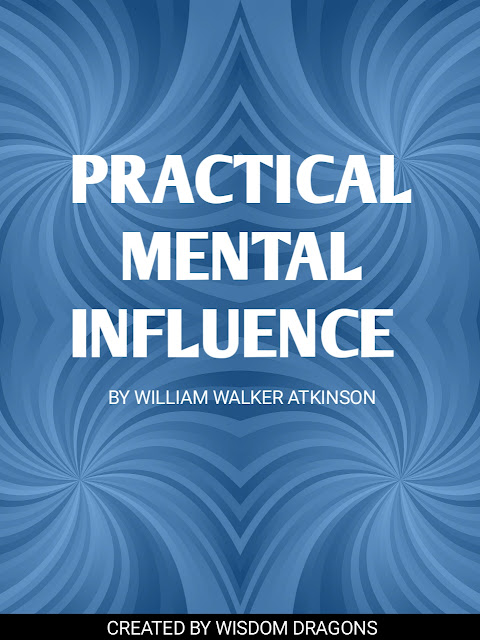THE RIDDLE OF LIFE/PART 10
CHAPTER
X
THOUGHT-POWER
AMD ITS USE
ONE
of the most striking features of the present day is the recognition on all
hands of the power of thought, the belief that a man can mould his character,
and therefore his destiny, by the exercise of this power which makes him man.
In this our modern ideas are coming into line with the religious teachings of
the past. 'Man is created by thought', was written in a Hindu scripture. 'What
a man thinks on that he becomes; therefore think on the Eternal.' 'As he
thinketh in his heart, so is he', said the wise King of Israel, giving warning
against association with an evil man. 'All that we are is made up of our
thoughts', said the Buddha. 'Whosoever looketh on a woman to lust after her,
hath committed adultery with her already in his heart', declared the Christ.
Thought is the parent of action; our nature sets itself to embody that which is
generated by thought. Modern psychology states that the body tends to follow
out the thought, and traces the inclination felt by some to throw themselves
down from a height to the imagination picturing a fall, and the body acting out
the picture.
There
being, then, a practically general appreciation of the power of thought, it
becomes a matter of great moment to know how to use this power in the highest
possible way and to the greatest possible effect. This can best be done by the
practice of meditation, and one of the simplest methods—which has also the
advantage that its value can be tested by each person for himself—is as
follows.
Examining
your own character, you pick some distinct defect in it. You then ask yourself,
what is its exact opposite, the virtue which is its antithesis. Let us say that
you suffer from irritability; you select patience. Then, regularly every
morning, before going out into the world, you sit down for from three to five
minutes and think on patience—its value, its beauty, its practice under
provocation, taking one point one day, another another, and thinking as
steadily as you can, recalling the mind when it wanders; think of yourself as
perfectly patient, a model of patience, and end with a vow, This patience,
which is my true self, 1 will feel and show today.'
For
a few days, probably, there will be no change perceptible; you will still feel
and show irritability. Go on steadily every morning. Presently, as you say an
irritable thing, the thought will flash into your mind unbidden, 'I should have
been patient'. Still go on. Soon the thought of patience will arise with the
irritable impulse, and the outer manifestation will be checked. Still go on.
The irritable impulse will grow feebler and feebler, until you find that
irritability has disappeared, and that patience has become your normal attitude
towards annoyances.
Here
is an experiment that anyone can try, and prove the law for himself. Once
proven, he can use it, and build virtue after virtue in a similar way, until he
has created an ideal character by the power of thought.
Another
use for this power is to help any good cause by sending to it good thoughts: to
aid a friend in trouble by sending thoughts of comfort; a friend in search of
truth by thoughts, clear and definite, of the truths you know. You can send out
into the mental atmosphere thoughts which will raise, purify, inspire, all who
are sensitive to them; thoughts of protection, to be guardian angels of those
you love. Right thought is a continual benediction which each can radiate, like
a fountain spraying forth sweet waters.
Yet
must we not forget the reverse of this fair picture. Wrong thought is as swift
for evil as is right thought for good. Thought can wound as well as heal,
distress as well as comfort. Ill thoughts thrown into the mental atmosphere
poison receptive minds; thoughts of anger and revenge lend strength to the
murderous blow; thoughts which wrong others barb the tongue of slander, wing
the arrows loosed at the unjustly assailed. The mind tenanted by evil thoughts
acts as a magnet to attract like thoughts from others, and thus intensifies the
original ill. To think on evil is a step towards doing evil, and a polluted
imagination prompts the realisation of its own foul creations. 'As a man thinks
so he becomes', is the law for evil thoughts as well as for good. Moreover, to
dwell on an evil thought gradually deprives it of its repulsiveness, and impels
the thinker to perform an action which embodies it.
Such
is the law of thought, such its power. 'If ye know these things, happy are ye
if ye do them.'
NEXT CHAPTER



Comments
Post a Comment